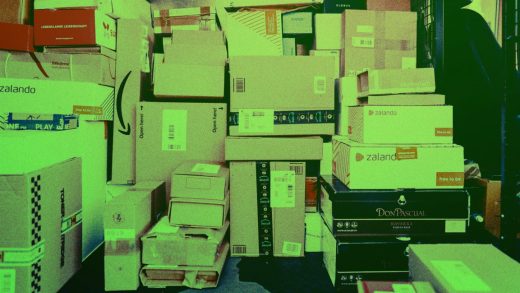Alibaba’s extended Singles Day sales bring in a stunning $100 billion from Chinese shoppers
China’s Singles Day is the world’s largest annual shopping festival—and it got even larger this year, reports the event’s purveyor, Alibaba Group. Shoppers spent a record $100 billion over the 11-day sale, decimating last year’s total of $38 billion over a 24-hour sale.
Singles Day, which was born in the early 1990s as a party for Chinese university students to celebrate their singleness, has since grown into a gargantuan shopping spree after Alibaba, the e-commerce company cofounded by Jack Ma, co-opted the title in 2009. Thanks to smart marketing and a massive consumer platform, the event now often dwarfs Black Friday and Cyber Monday sales combined.
While the event typically takes place on November 11—which, when written numerically, looks like “bare branches,” a Chinese term for single people—it was extended across the entire November 1-12 period this year to increase sales for merchants impacted by the coronavirus pandemic. Companies taking part ranged from small businesses to international conglomerates, including the likes of Apple, Nike, Néstle, and L’Oréal.
Alibaba could use the good news. Earlier this month, its financial affiliate Ant Group, which is controlled by Ma, suffered a huge setback when its mammoth $34 billion IPO was suspended over regulatory issues, causing a drop in Alibaba’s stock.
The sale’s spectacular success was also a show of triumph for China over its COVID-19 epidemic. China, which has controversially quashed its coronavirus outbreak with somewhat draconian tactics, has seen its economy bounce back relatively quickly, reporting positive economic momentum for the second quarter in a row last month.
“China’s economy has seen a strong recovery and Chinese consumers’ purchase behaviors have already returned to pre-pandemic levels, if not higher,” Xiaofeng Wang, an analyst at market research firm Forrester, wrote in Forbes.
Alibaba competitor JD.com also cashed in with record sales over Singles Day this year, netting nearly $41 billion. For both Alibaba and JD.com, foreign brands were the top seller, as shoppers who would have traveled abroad over holidays to buy foreign labels were thwarted by the global pandemic.
However, despite the Singles Day boost, Alibaba will face tough times ahead as China looks to crack down on domestic internet retailers with new anti-monopoly rules.
Alibaba’s stock, which plunged 8% after the halting of Ant Group’s IPO, has since sunk another 7% amid threats from Beijing regulators.
(11)



